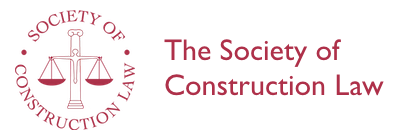Let’s Get Metaphysical: Mitigating the Credibility Crisis in Forensic Delay Analysis
Anders S Axelson
May 2021
A paper based on the commended entry in the Hudson essay competition 2019
The paper addresses the apparent crisis of credibility threatening the field of forensic delay analysis worldwide. It considers the SCL Delay and Disruption Protocol and the AACE International Protocol and the multiple methods of analysis articulated by these protocols, and suggests that the crisis of credibility need not be terminal. The author contends that the greatest flaw of the protocol methods is their failure to recognise what it is that they purport to represent: namely, the metaphysics of time and causality as it relates to project delay, and as it may be interpreted via the common law. The paper sets out the 22 first principles that ought to apply to forensic delay analysis, comprising metaphysical principles of time and of causation, causal chain principles and causal principles of common law. The paper goes on to consider in detail how methods of analysis ought to be adapted in light of these principles so as to improve forensic credibility.
1. Advancing the semantic framework – 1.1 Programming concepts – 1.2 Metaphysical concepts – 1.3 Simulation concepts – 2. Twenty-two first principles – 2.1 Metaphysical principles of time – 2.2 Relevant metaphysical principles of causation – 2.3 Causal chain principles – 2.4 Relevant causal principles of the common law – 3. Implications for methodology – 3.1 Accounts of causation – 3.2 Parsing the Passage of time – 3.3 Establishing the baseline – 3.4 Simulating the delay – 3.5 Measuring the effect – 3.6 Determining the cause: method for intervallic delays – 3.7 Determining the cause: method for instantaneous delays – 3.8 Challenging faulty testimony – 4. Conclusion
The author: Anders S Axelson is a consulting engineer and arbitrator in Melbourne, Australia.
Text: 22 pages
